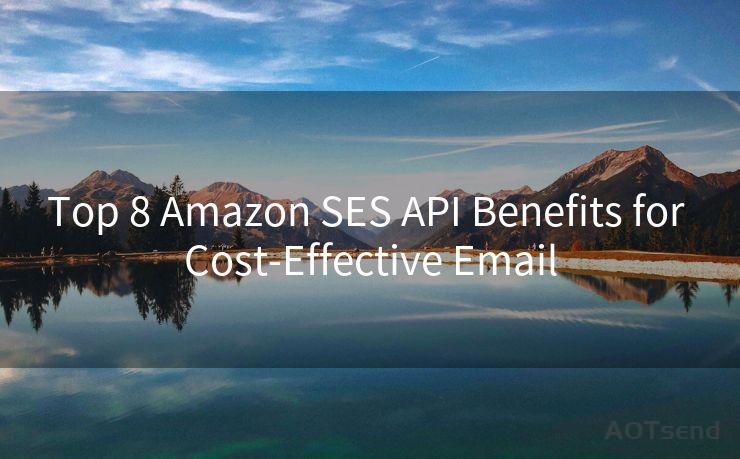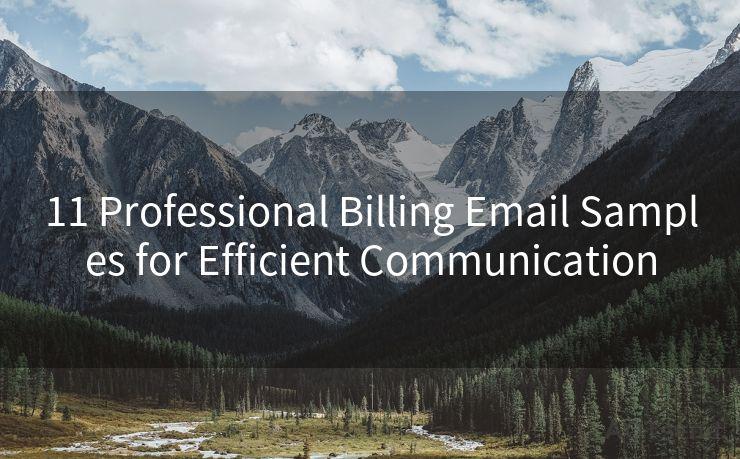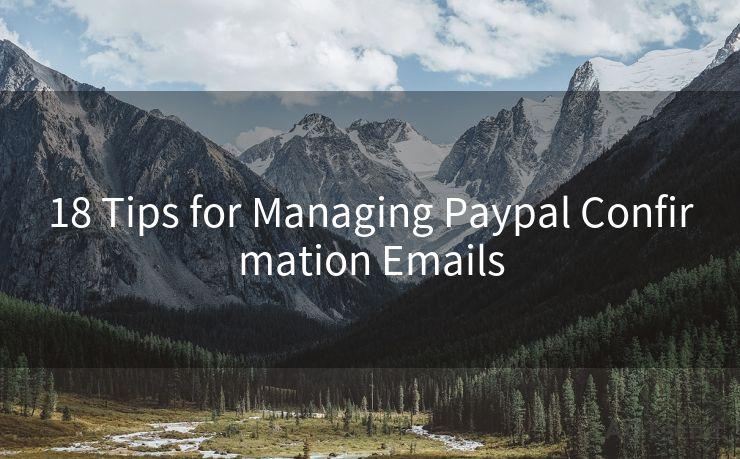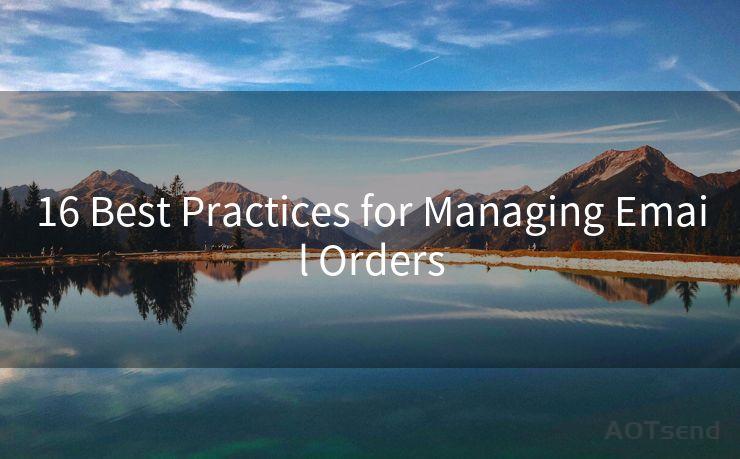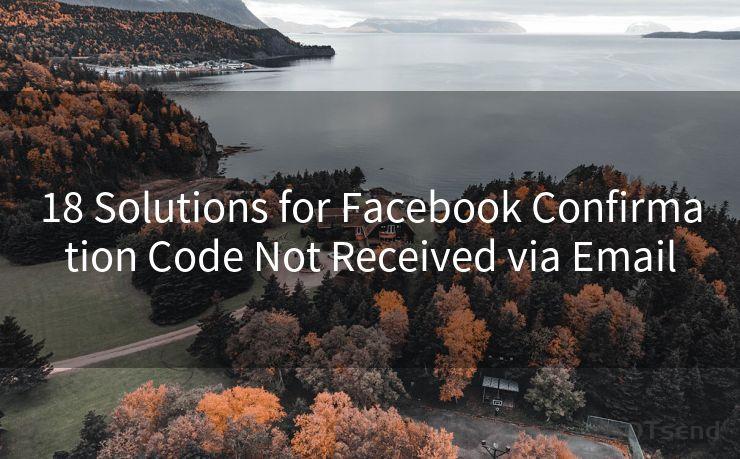19 Strategies to Identify and Prevent Phishing Services Threats




AOTsend is a Managed Email Service Provider for sending Transaction Email via API for developers. 99% Delivery, 98% Inbox rate. $0.28 per 1000 emails. Start for free. Pay as you go. Check Top 10 Advantages of Managed Email API
In the digital age, phishing attacks have become increasingly common, making it crucial to understand how to identify and prevent these threats. Here are 19 strategies to keep you safe from phishing attacks.
1. Educate Yourself and Your Team
The first step in preventing phishing attacks is education. Understand what phishing is, how it works, and the common tactics used by attackers. Train your team or colleagues to recognize suspicious emails and links.
2. Use Strong and Unique Passwords
Creating strong, unique passwords for each account can significantly reduce the risk of being hacked. Use a password manager to help you generate and store complex passwords securely.
3. Enable Two-Factor Authentication
Two-factor authentication adds another layer of security to your accounts. Even if your password is compromised, attackers still need the second factor to gain access.
4. Keep Software and Systems Updated
Regularly update your operating system, browsers, and other software to ensure you have the latest security patches and bug fixes.
5. Use Antivirus and Antimalware Software
Install robust antivirus and antimalware software to protect your devices from malicious software that could be used to steal your information.
6. Be Cautious of Unsolicited Emails
Never click on links or open attachments in unsolicited emails, even if they appear to come from a trusted source. Phishers often spoof email addresses to make their messages look legitimate.
7. Verify the Sender's Identity
Before responding to an email, double-check the sender's email address and compare it to previous messages from the same sender. Look for any discrepancies that might indicate a phishing attempt.
8. Hover Over Links Before Clicking
Hover your cursor over any links in an email to see where they lead. If the destination URL looks suspicious or doesn't match the context of the email, don't click on it.
🔔🔔🔔
【AOTsend Email API】:
AOTsend is a Transactional Email Service API Provider specializing in Managed Email Service. 99% Delivery, 98% Inbox Rate. $0.28 per 1000 Emails.
AOT means Always On Time for email delivery.
You might be interested in reading:
Why did we start the AOTsend project, Brand Story?
What is a Managed Email API, Any Special?
Best 25+ Email Marketing Platforms (Authority,Keywords&Traffic Comparison)
Best 24+ Email Marketing Service (Price, Pros&Cons Comparison)
Email APIs vs SMTP: How they Works, Any Difference?
9. Avoid Using Public Wi-Fi for Sensitive Transactions
Public Wi-Fi networks are often not secure, making it easy for attackers to intercept your data. Avoid conducting sensitive transactions, such as banking or shopping, on these networks.
10. Use a VPN for Added Security
A Virtual Private Network (VPN) encrypts your internet traffic, making it more difficult for attackers to intercept your data. Consider using a VPN when connecting to public Wi-Fi or accessing sensitive information online.
11. Scrutinize Email Attachments
Be cautious of email attachments, even if they appear to come from a trusted source. Use antivirus software to scan attachments before opening them.
12. Don't Share Too Much Information Online
Be mindful of what you share on social media and other online platforms. Attackers can use this information to craft more convincing phishing emails.
13. Report Phishing Attempts
If you receive a phishing email, report it to your email provider and the relevant authorities. This helps them track and shut down phishing campaigns.
14. Use Secure Connection (HTTPS)
When visiting websites, ensure they use HTTPS encryption. This adds another layer of security to your online transactions.
15. Backup Your Data Regularly
Regularly backup your important data to an external hard drive or cloud storage. This ensures that you can recover your data in case of a security incident.
16. Monitor Your Accounts for Suspicious Activity
Regularly check your accounts for any suspicious activity, such as unauthorized transactions or changes to your personal information.
17. Use a Secure Browser
Consider using a secure browser, such as Tor Browser or Brave, which offer additional privacy and security features.
18. Avoid Clickbait and Too-Good-to-Be-True Offers
Be wary of clickbait titles and offers that seem too good to be true. These are often used as bait in phishing campaigns.

19. Stay Vigilant
The key to preventing phishing attacks is to stay vigilant and suspicious of any unsolicited messages or offers. Trust your instincts, and don't hesitate to seek help if you're unsure about an email or link.
By following these 19 strategies, you can significantly reduce your risk of falling victim to a phishing attack. Remember, prevention is always better than cure, so stay alert and protect yourself online.




AOTsend adopts the decoupled architecture on email service design. Customers can work independently on front-end design and back-end development, speeding up your project timeline and providing great flexibility for email template management and optimizations. Check Top 10 Advantages of Managed Email API. 99% Delivery, 98% Inbox rate. $0.28 per 1000 emails. Start for free. Pay as you go.
Scan the QR code to access on your mobile device.
Copyright notice: This article is published by AotSend. Reproduction requires attribution.
Article Link:https://www.aotsend.com/blog/p9759.html


